The Catholic Bishop of Kafanchan Diocese, Kaduna State, Most Rev Julius Kundi, talks about the lynching of a student of the Shehu Shagari College of Education, Sokoto, identified as Deborah, by a mob suspected to be students of the institutions, as well as the unending attacks in Southern Kaduna and its environs
How did you receive the news of the killing of the student of the Shehu Shagari College of Education, Sokoto, for alleged blasphemy?
It is shocking but not surprising because we know that religious fanaticism is something that is still there. Many of us have spoken against it but only a few pay attention to it. Particularly in the core North, the way people practice religion is very different from the dictates of the religion itself. But it (killing in the name of religion) is not surprising, because it is not the first time it is happening; I recall that some years ago, a nurse in a teaching hospital in Zaria escaped at night after she was accused of sharing a post. So, it is something that keeps recurring because nothing concrete has been done either by religious leaders or the authorities about it. It is shocking that at this time such things are happening.
Why do you think religious and political leaders have not taken concrete actions against deadly mob actions in the name of religion?
Well, it is not a question for me to answer; they should be able to answer that, but for us, we can imagine what they are thinking. These are different times. We should be able to see things differently and that is why those of us outside Islam sometimes are left confused. If you project yourself as an adherent of a religion of peace but do something contrary, that leaves so many questions to be asked. As I said earlier, it is something that has been happening and will keep happening unless and until concrete actions are taken by Islamic scholars, religious leaders and the authorities. Something is wrong and everybody sees and knows it. Some moderate and right-thinking Muslims condemn such things and know that nobody has the right to take somebody’s life no matter what they claim.
Despite the growing concerns over the spate of insecurity in Nigeria, the problem seems to get worse by the day. What are your thoughts on this?
It boils down to the body language of the government. We all believe that this country has what it takes to end this. I am one of those who believe that the government has the wherewithal to end it. I am not certified to buy a gun and I don’t even have the money to buy a gun, but the government has the authority. It is not just about rhetoric but about action. You don’t, because you have a big microphone, just say that you will flush the perpetrators out. Let us have the feeling that we are safe; let us see that everybody can walk freely and that is when we will know that you are working. You don’t say one thing in the media and another thing outside; that suggests some lack of seriousness on the part of the government.
How bad is the situation in Kaduna State, where several communities have come under attack by terrorists and scores of lives have been lost?
Maybe I should invite you to come over and see for yourself because sometimes when we try to talk, we get a little emotional about it. But the fact of the matter is that things are not good. This is not how things should be; it is just like our lives in Kaduna have been mortgaged. We, in Southern Kaduna, are no longer living the lives we used to. We had a life of freedom, but we can’t live that kind of life any longer. Our joy has been taken away. We can’t go freely to the farms as usual. Ninety per cent of the people in Southern Kaduna are farmers and hundreds of them were even dismissed from the civil service, so you can imagine the hunger and deprivation. Where will they start from?
We are tired of burying the dead. We can only stay for maybe only a week without an attack and you cannot just say the attacks are over, because before you open your mouth to say that, another one takes place. So, only God knows when they are going to end. But I’m talking about what is happening in Southern Kaduna. The media knows what is happening in other parts of the country and the state. I begin to wonder that in a sane environment, this is a case that requires a declaration of state of emergency but nobody is talking in that direction, maybe because people feel it is not beneficial or necessary. But the truth is that hundreds are dying daily to the extent that some of us in Southern Kaduna thought it was more like genocide, because people who have no means to protect themselves are killed at night by marauding and well-armed terrorists
The North used to be the choice destination for many people due to its climate, the ease of doing business and other things. What do you think are the root causes of the different levels of insecurity that have made the North a dreaded place to live now in for many?
In my opinion, there are so many things I feel are involved here. It could be political, environmental, and probably the way we do things. But one has to be very careful about what one says. I grew up in the North and saw how people cherished one another, not minding the differences, but suddenly, things changed. Even as a younger adult, I preferred to stay in the North than the South, but suddenly, things are happening and we can’t just understand. Is it political? Is it religious? Is it ethnic? As far as I am concerned, it has the nuances of these three.
There have been claims and counter-claims over the nature of such attacks with some arguing that they are targeted at Christians. What’s your opinion on that?
Anybody killed in Southern Kaduna could be a Christian. We are the ones being killed; we are the ones without a means of protection and we know our killers and the government knows those who are killing us. So, why shouldn’t we complain? That is why I say that if a person says there is a religious, political, and ethnic connotation to the killings, the person may be right. It is not difficult for one to believe that. Many of the communities in Kafanchan are made up of Christians; there are a few Muslim communities, so when these communities are heavily targeted, won’t you think there is an agenda that has to do with that? It may be wrong to say that this has anything to do with religion, but when you begin to see how things are happening, you may be tempted to connect it with religion.
Will you say that the regularity of the attacks in Kaduna communities and the high number of casualties are clear indications of the alleged inaction of security agencies?
We have a failed state. There is a breakdown of law and order. Miscreants carry guns and go on rampage at will and there is still a government in place. And it is not just in Southern Kaduna. This is exactly what is happening in the whole country and we are regarded as wailers, because we complain. But we are dying. So, should we keep quiet?
Some of the affected residents claim that security agencies only arrive hours after such attacks have been carried out with sorrow, tears and blood left behind? Do you believe them?
In many instances, you will not find security agencies there. Sometimes, the attackers operate for two hours. I mean, even if they (security agents) are flying from Abuja, they should be able to get there, but it takes them about two to three hours to get to the scene of the attacks.
Do you think the security agencies lack the capacity or the personnel collaborate with the attackers?
I have said that I believe that we have the capacity to handle this and bring it to a definite end if we so desire and if we have the moral will. Perhaps, the moral will is not there; perhaps there is a collusion; that is why I keep referring to the many questions we have. We can’t find answers to the many questions we are asking.
As a member of the Christian Association of Nigeria, how many Christian communities and Christians have been killed in the last year by bandits or terrorists in Kaduna?
Randomly, I can tell you that they are in their hundreds.
How often does the Catholic Church get requests for mass burials of victims of banditry in the state?
Sometimes, some communities carry out the burial before we get there. People are dying in dozens. In the last attack, we lost 13 persons and we could not give them a funeral, so they had to be buried differently and quickly. Some cultures don’t keep the dead for long, so we had to allow some people to give their dead the last respect they want. It is something that we are used to. Before I arrived, I learnt that over 200 bodies were buried at once a few years ago.
The Catholic Church has not been spared in the onslaught by terrorists and kidnappers. For instance, a priest, Rev Fr Joseph Akete, who was kidnapped on March 8 at St John’s Catholic Church, Kudenda, was on Wednesday reported to have died in captivity. Why do criminals see priests as soft targets?
I don’t know why but what I know from my point of view as a man of God is that evil is unleashed on us. Evil is upon us and only God knows when it will be taken away from us. Nobody is safe because evil is not a respecter of title or responsibilities. So, when evil is unleashed on a community, it carries everything along. Sometimes, pastors and priests in the North are targeted, especially in Kaduna State, to the extent that price tags were put on their heads. Kidnapping is not new to us, because we know that we are more like endangered species when it comes to operating as men of God in the North.
Father Akete was not the first priest to be kidnapped; there are other cases. But are the continuous attacks by bandits discouraging young Nigerians from aspiring to become Catholic priests and priests from taking up assignments in Kaduna and other northern states where such attacks are prevalent?
Surprisingly, this is boosting us. Faith becomes stronger when it is challenged. In Kafanchan Diocese, I always acknowledge and praise my priests as the heroes of the moment. With all the things happening, instead of them being discouraged into submission, they are getting stronger daily. None of them is running away from his community; even some of them, who were kidnapped, want to go back to the same places. We have over 100 people who applied to join the priesthood this year. Next month, we will screen them to get the number we want; so, I don’t think the attacks are discouraging anybody. Everybody, even the lay faithful, has come to realise that it is evil being unleashed on us to intimidate us into abandoning our faith. We cherish our faith more than any other thing because it is a gift from God and nobody can take that away from us.
But is the Catholic Church doing anything to protect its priests from attacks by terrorists? Are priests encouraged to defend themselves?
We talk to each other, but we don’t have the money to buy arms. We invite security experts to educate us about security tips and how to stay safe like any other person.
Are you aware of the arrests, prosecution and conviction of the perpetrators of these attacks?
I have only heard that a few people were arrested; that was all I heard. I have not heard about any prosecution or punishment meted out to the perpetrators. That is why we keep calling for justice, which is more like a mirage.
What impression does that give you?
The impression that comes with that is lack of seriousness from the authorities, which, of course, makes the perpetrators of evil continue. When there is no justice, those perpetrating such crimes believe they can kill people and get away with it. That is why some of us are blaming the government, because it is supposed to ensure that justice prevails.
Do you think the Federal Government paid heed to the several calls by the Catholic Bishops Conference of Nigeria for urgent actions to rejig the security architecture and nip the security challenges in the bud?
But you have been reading their responses. They feel that we should not even talk, that it is not our role to criticise the government, and that our role is to pray. That is all we get. At the end of the day, they try to ridicule what we are saying by accusing us of aspiring for political positions or supporting a particular party. But the fact remains that no one can silence the priests. The fact also is that no one is safe in Nigeria, even politicians have said so.
What does that tell you about how concerned the government is about the safety of the lives of ordinary Nigerians?
They claim they do, but we see that there is a conflict between utterances and body language.
Going by this and the unending reports of killings in Kaduna State, do you think Governor Nasir El-Rufai, and the President, Major General Muhammadu Buhari (retd.), have failed in their constitutional duties to protect the lives and property of the citizens?
This is not the first time we have said that and we will keep saying it. In the area of security, they have failed. They probably succeeded in other things, but in the area of security, no. They have said they are overwhelmed by it and have shown that they can’t control it. But if they were sincere, they would have resigned, but nobody is talking about that.
As the 2023 general elections draw near and with the crop of politicians campaigning to remain in power, do you practically think things will change for the better?
I am neither a prophet nor a prophet of doom. But what I feel is that there is a little confusion, especially with the crop of people coming out. Some of us are beginning to ask whether we are really aware of the things on the ground. But I have faith. God can intervene at any time. When it comes to politics, many times, the right people do not get the opportunity to govern. We just pray that God will bend the handwriting to favour the people of Nigeria, who have suffered enough.
What role is the church playing in guiding Christians on how to participate in elections?
Our role is to pray, advice and guide, and we have been doing that. In the Catholic Church, we have a structure on the ground through the Justice, Development and Peace Commission, and Caritas. Through these agencies, we carry out sensitisation and election monitoring. We also talk to politicians and tell them to be more sensitive to the needs of the people, to put their ambitions aside and project the feelings of the people first. We also teach Christians how they can become credible politicians.
Credit: PUNCH Newspapers



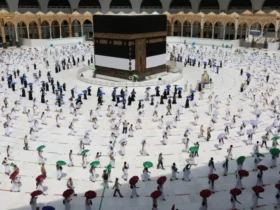
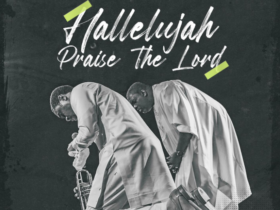


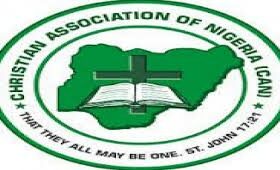


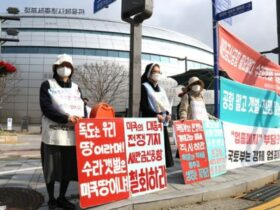
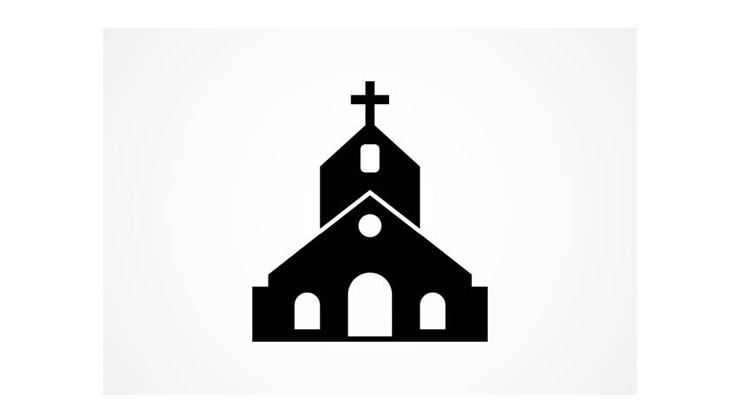
Leave a Reply